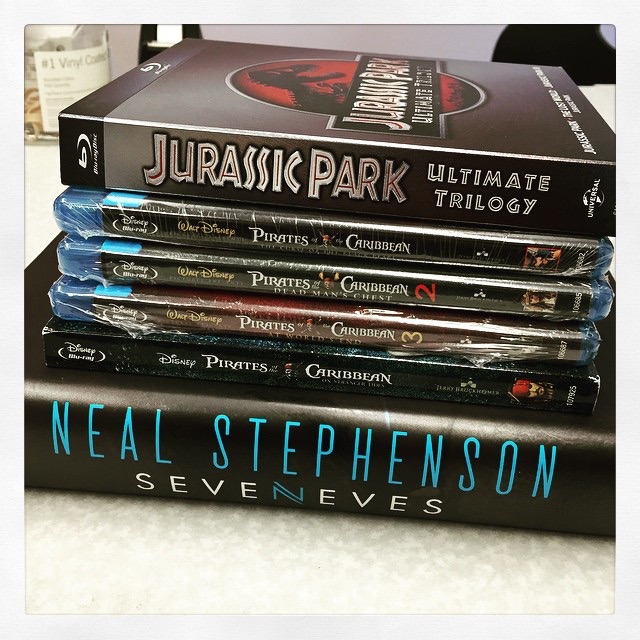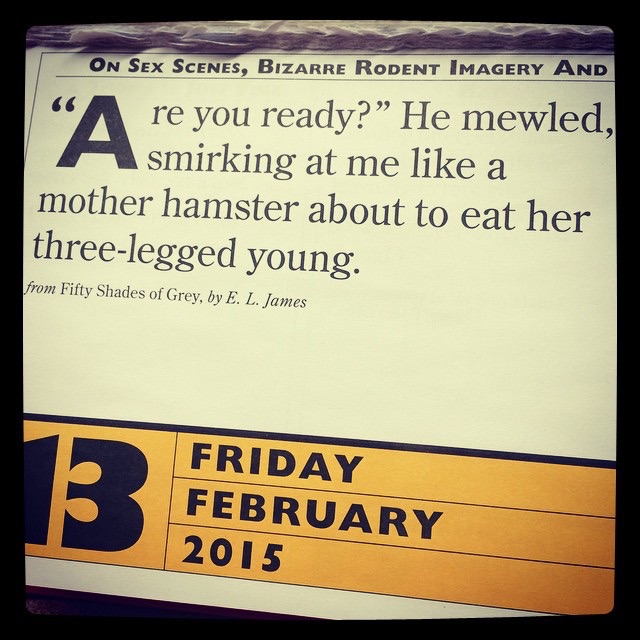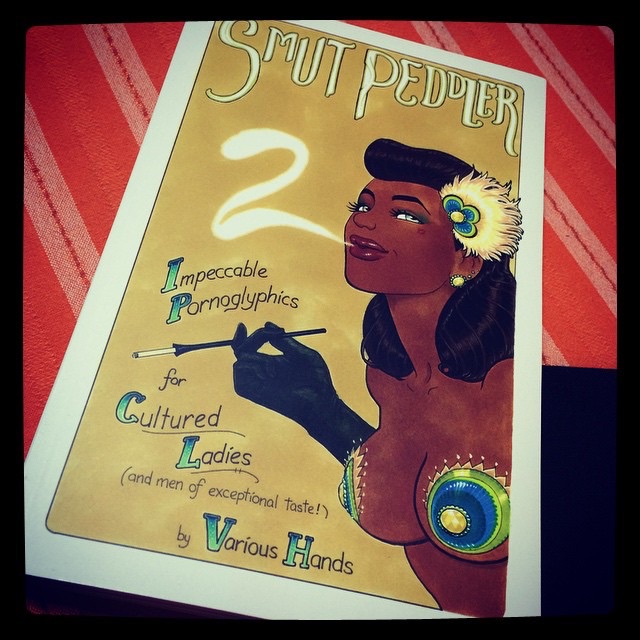More goodies! The movies are birthday presents from Prairie’s mom (we’ll have to let her know what she got me), the book I’ve had on preorder for months. Our plan is to find time to watch the Jurassic Park trilogy before seeing Jurassic World. No real reason for the Pirates series other than that we enjoy them. And Stephenson is probably my favorite current SF author. Good thing this quarter is almost over!









